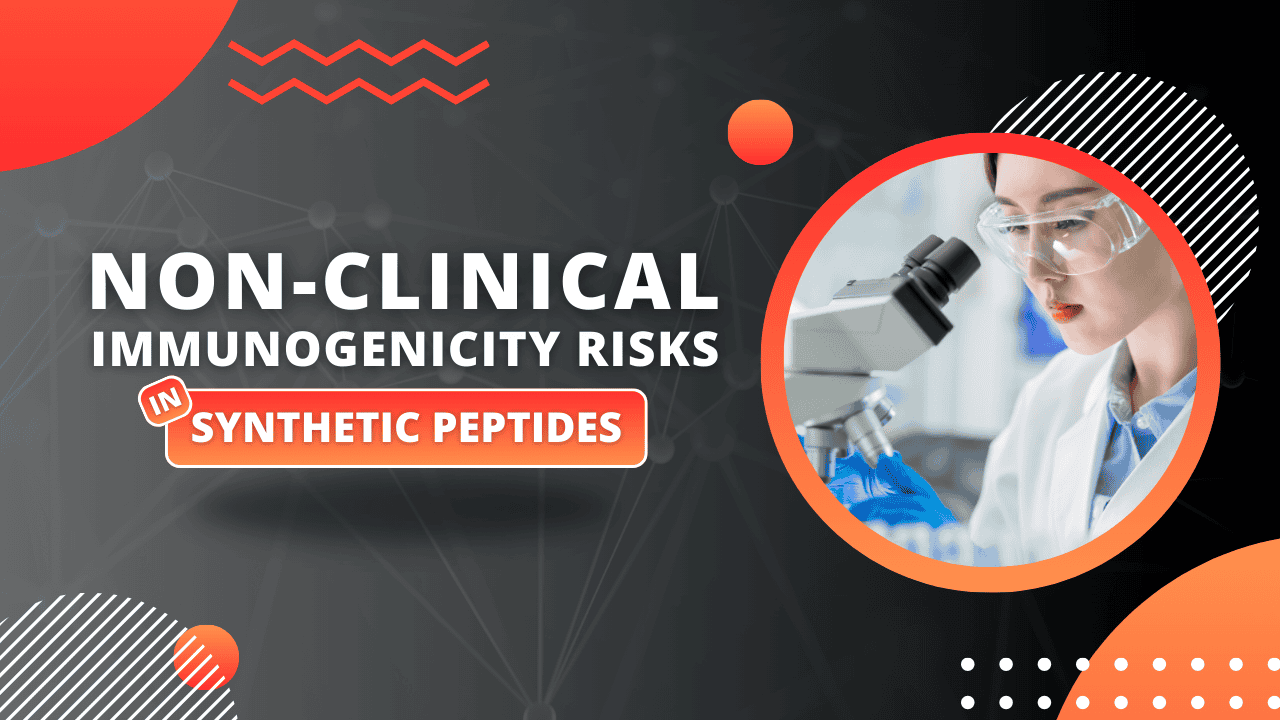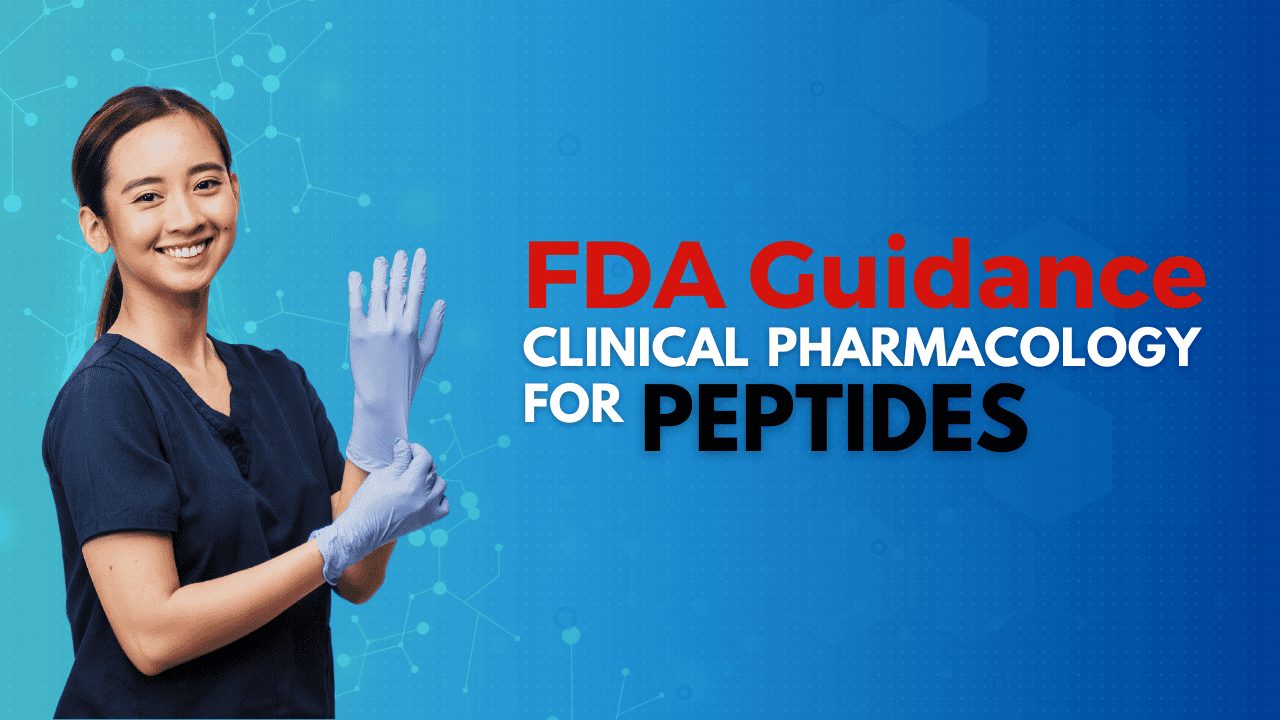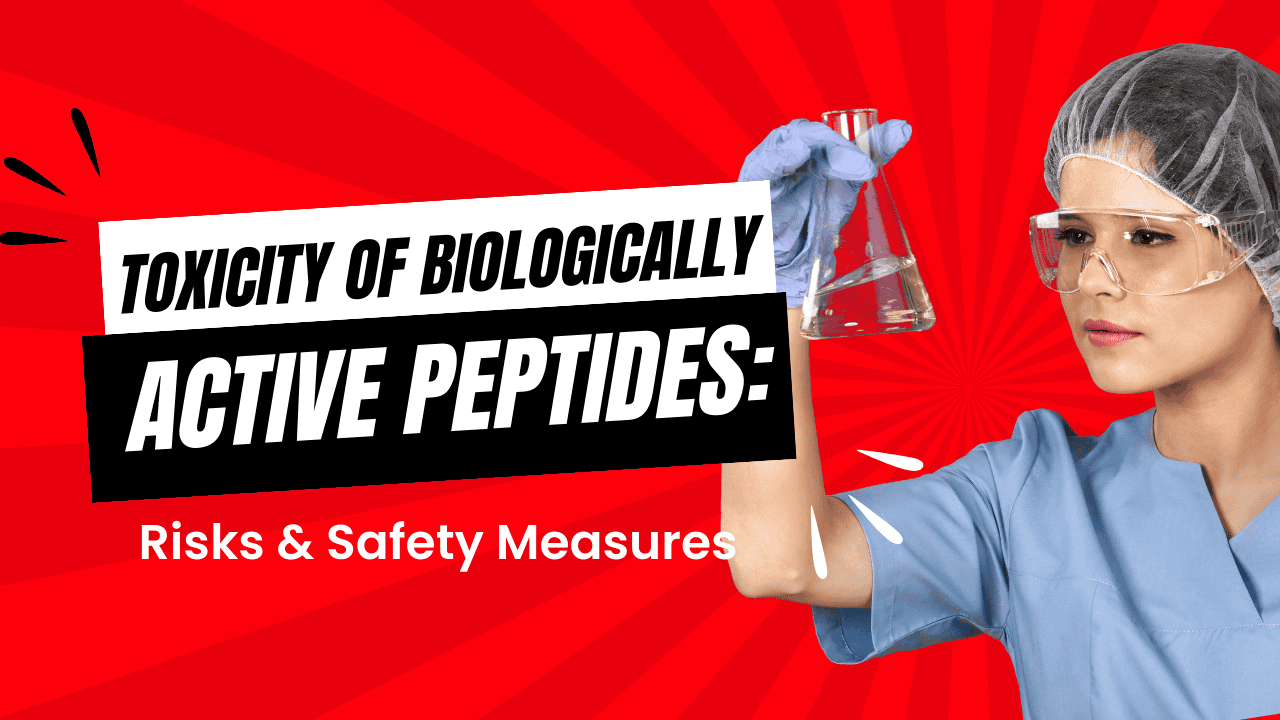

In the rapidly evolving world of medicine, therapeutic peptides stand out as a shining beacon of hope.
These tiny marvels of medical science promise innovative treatments for numerous conditions, making the realm of peptide drugs an exciting frontier.
This article dives deep into the current status, recent advances, and future directions in the clinical development of therapeutic peptides.
Whether you’re a science enthusiast, a medical professional, or just curious about the latest trends in medicine, this exploration of peptide therapeutics will captivate and inform.
Therapeutic peptides are short chains of amino acids designed to mimic natural peptides in the body. These mimicries often result in fewer side effects and higher specificity in targeting disease pathways. It’s like having a precision-guided missile for medical interventions.
Therapeutic peptides exhibit high specificity and potency, making them effective in low doses. Their unique peptide sequence allows them to interact precisely with target molecules, minimizing adverse effects.
The development of therapeutic peptides typically involves techniques like solid-phase peptide synthesis (SPPS) and peptide modification. These intricately designed peptides aim to enhance stability and efficacy in clinical settings.
Peptide-based drugs are increasingly being explored for conditions including cancer, diabetes, and infectious diseases. These drugs promise not just effectiveness but also reduced side effects.
Clinical trials for peptide therapeutics are more structured and focused than ever. They aim to ensure safety and efficacy, and many antimicrobial peptide candidates are showing promising results in early-phase trials.
Notable companies in the field of therapeutic peptide development include Novo Nordisk, Ipsen, and Pfizer. These giants are pioneering groundbreaking strides in peptide drug discovery.
Recent advances include the development of cyclic peptides and stapled peptides, which offer enhanced stability and activity. This innovation promises a new era of peptide drugs with optimized therapeutic potential.
Cutting-edge research in peptide structure and binding mechanisms allows for the creation of more targeted and effective peptide-based drugs. This means faster therapeutic benefits and minimized side effects.
Key technologies include synthetic peptide synthesis and solid phase peptide synthesis. These methods enhance the precision and efficiency of peptide production, enabling faster and more effective peptide therapeutics.
The main hurdles include peptide stability, delivery, and degradation. Overcoming these challenges requires innovative solutions in peptide modification and formulation.
Manufacturers employ strategies like PEGylation and cyclic peptide design to enhance stability. These approaches help therapeutic peptides maintain their structure and efficacy in vivo.
Effective delivery systems are critical for the success of peptide therapeutics. Technologies such as nanoparticles and cell-penetrating peptides are being developed to optimize delivery and maximize therapeutic effects.
Peptide therapeutics are used to treat a variety of diseases including cancer, heart disease, and metabolic disorders. Their versatility makes them suitable for an array of clinical applications.
Peptides play a critical role in cancer therapy by targeting specific tumor cells and eliciting immune responses. Anticancer peptides are particularly promising in this regard.
In metabolic disorders like diabetes, peptides such as insulin analogs are crucial for management. These therapeutic peptides help regulate blood sugar levels effectively.
The current status of clinical trials for peptide therapeutics shows many peptides in active clinical development. These trials are essential for ensuring the safety and efficacy of new peptide drugs.
Clinical trials for peptide therapeutics are meticulously designed to evaluate safety, efficacy, and dosage. Phased trials help identify the therapeutic potential before widespread clinical application.
Recent clinical trials have shown promising outcomes, especially for antimicrobial peptides and anticancer peptides. These results pave the way for future FDA approvals and widespread clinical use.
Peptides are considered highly effective due to their specificity and low toxicity. They can target and modulate specific pathways with minimal off-target effects.
Compared to traditional drugs, peptides often provide greater efficacy and fewer side effects. Their ability to be tailored to specific receptors adds a level of precision unmatched by conventional therapies.
Peptides generally exhibit favorable safety profiles. Their natural composition means they are less likely to induce immune reactions, making them safer choices for therapeutic use.
Innovations include the development of oral and transdermal formulations. These methods broaden the administration routes of peptides, enhancing patient compliance.
Nanotechnology is employed to improve the delivery and stability of peptides. Nanocarriers protect peptides from degradation and help transport them to target sites efficiently.
Oral formulations offer ease of use, while injectables provide rapid and controlled peptide release. The choice depends on the therapeutic needs and patient preferences.
Peptide therapeutics are regulated by bodies like the US Food and Drug Administration (FDA). These regulatory frameworks ensure the safety, efficacy, and quality of peptide drugs.
Regulatory approval focuses on preclinical and clinical trial data, manufacturing processes, and safety profiles. Meeting these criteria is essential for bringing peptide therapeutics to market.
Regulatory changes can accelerate or slow down the development of peptide-based drugs. Compliance with evolving guidelines is crucial for successful development and approval.
The future of peptide-based drugs is incredibly promising. Advancements in peptide design and delivery are expected to unlock new therapeutic potentials.
Biotechnology will play a vital role in peptide therapeutics by enabling precision peptide engineering and personalized medicine approaches.
Emerging trends include the exploration of antimicrobial peptides and peptide-based vaccines. These innovative therapeutics are set to revolutionize healthcare.
Artificial Intelligence (AI) can enhance peptide drug discovery by predicting peptide interactions and optimizing peptide sequences for better efficacy.
Personalized medicine will usher in tailored peptide treatments, ensuring that therapies are customized to individual genetic profiles for maximum effectiveness.
Peptide-based vaccines hold enormous potential for future immunotherapies. They offer targeted immune responses with fewer side effects compared to traditional vaccines.
The market outlook for peptide-based drugs is booming. Increasing investment in research and development is driving growth in the peptide therapeutics market.
Top players include pharmaceutical giants like Novo Nordisk and Pfizer. These companies lead the way in peptide drug development and innovation.
Economic drivers include the demand for more effective and safer treatments. The high specificity and low toxicity of peptides make them attractive options for investment.
Therapeutic peptides are synthesized using methods like solid-phase peptide synthesis. This technique allows for precise control over the peptide sequence and structure.
Large-scale manufacturing faces challenges such as maintaining peptide purity and stability. Advanced technologies and stringent quality control measures are essential to overcome these hurdles.
Advances in manufacturing, like automation and improved synthesis methods, enhance the production speed and quality of peptide therapeutics.
Peptide-based drugs improve patient outcomes by offering targeted therapies with fewer side effects. This results in better disease management and quality of life.
Economic benefits include reduced healthcare costs due to lower side effects and hospitalizations. Efficient drug development processes also contribute to economic advantages.
Peptide therapeutics can be easily integrated with existing treatments. They offer complementary mechanisms that enhance the overall therapeutic effects.
Cutting-edge delivery systems include nanoparticles and transdermal patches. These systems ensure efficient and targeted delivery of peptides to their action sites.
New delivery systems enhance peptide efficacy by protecting them from degradation and ensuring they reach their target sites intact and active.
Challenges include ensuring stability and bioavailability. Delivery systems must overcome biological barriers without compromising peptide integrity.
Advances in transdermal delivery include the development of microneedle patches. These provide a painless and effective method for delivering peptides through the skin.
Peptide-based drug delivery systems work by encapsulating the peptide and guiding it to its target. This protects the peptide and enhances its therapeutic action.
Peptides can bypass drug resistance by targeting alternative pathways or using mechanisms that pathogens haven’t encountered before.
Combination therapy involves using peptides alongside other treatments to enhance efficacy and mitigate resistance. This approach leverages synergistic effects.
Peptides are designed with modifications like PEGylation to evade immune detection. This helps them maintain activity and avoid premature degradation.
Common side effects include mild allergic reactions or injection site irritation. These are generally manageable with proper medical oversight.
Adverse effects are managed through careful monitoring and dosage adjustments. Clinical teams are trained to address side effects promptly.
Safety measures include rigorous preclinical testing and phased clinical studies. Adherence to regulatory guidelines ensures patient safety.
Peptide libraries are collections of diverse peptide sequences used to screen for biological activity. They accelerate the identification of potential drug candidates.
Benefits include rapid discovery of functional peptides and the ability to explore a vast chemical space. This speeds up the drug development process.
Peptide libraries allow for high-throughput screening of peptides, enabling quick identification of those with therapeutic potential. This significantly shortens the discovery phase.
Success stories include the development of peptide drugs like insulin analogs and GLP-1 agonists, which revolutionized diabetes treatment.
Specific peptides, such as antimicrobial peptides, have transformed infection management, providing new tools against antibiotic-resistant bacteria.
Failed trials highlight the importance of thorough preclinical testing and understanding peptide behavior in vivo. Lessons learned guide future research and development.
Peptide therapeutics enable tailored treatments based on individual genetic profiles. This precision reduces trial-and-error in treatment and enhances outcomes.
Personalized peptide treatments offer enhanced efficacy and reduced side effects, providing patients with customized therapeutic regimens.
Genomic data informs peptide design by identifying specific targets and pathways. This integration allows for the creation of highly specific and effective peptide drugs.
Exploring the world of therapeutic peptides offers a glimpse into the future of medicine, where precision, efficacy, and innovation converge to improve human health.
Yes, there are several FDA-approved peptides. These include drugs such as insulin analogs for diabetes management and GLP-1 agonists for metabolic conditions. The rigorous approval process ensures their safety and efficacy.
No, BPC 157 is not approved by the FDA. Despite some promising research, it lacks sufficient clinical trial data to meet the FDA’s stringent approval standards.
Yes, peptides are legal in the United States. However, they must be approved by the FDA for specific medical use. Some peptides are available for research purposes but are not approved for human consumption.
The Drugs@FDA database provides detailed information on FDA-approved drugs, including peptide and protein therapeutics. This resource is invaluable for professionals seeking comprehensive data on approved peptide drugs.
BPC 157 isn’t FDA-approved due to insufficient clinical data. While animal studies show potential, human clinical trials are essential for FDA approval, highlighting its safety and efficacy.
The safety of BPC 157 has not been conclusively established. Limited clinical studies in humans mean more research is needed to determine its safety profile for medical use.
Yes, several peptides have been approved by the FDA. Examples include exenatide and liraglutide, used in the management of diabetes and obesity.
The FDA hasn’t banned all peptides but regulates their use. Some peptides may be restricted or banned due to safety concerns or lack of efficacy data. Always check FDA guidelines for specifics.
There are numerous FDA-approved recombinant proteins, including therapeutic enzymes and hormones. They play critical roles in treating diseases like diabetes and growth disorders.
There are approximately 60 peptide drugs currently on the market. These drugs target a range of conditions, including cancer, diabetes, and infectious diseases.
Dr. Jean Martinez is a distinguished scientist in the field of peptide chemistry and therapeutic development. With more than 40 years of expertise in peptide synthesis and drug discovery, Dr. Martinez has played an instrumental role in advancing the understanding and application of therapeutic peptides. His research primarily focuses on the design and synthesis of biologically active peptides, which have contributed significantly to pharmaceutical advancements.
Dr. Martinez’s notable publications include:
Peptide-based inhibitors of protein-protein interactions – Published in European Journal of Medicinal Chemistry, this study explores novel peptide sequences designed to disrupt protein-protein interactions, offering promising avenues for therapeutic peptide applications. This work has been widely cited and remains influential in peptide drug development.
Cyclic peptides as scaffolds for peptide drug discovery – In this article, published in European Journal of Pharmaceutical Sciences, Dr. Martinez discusses the advantages and challenges of using cyclic peptides as therapeutic scaffolds. This publication has helped shape current thinking on the stability and efficacy of cyclic peptides in clinical development.
Dr. Martinez has also been recognized with numerous awards, including the prestigious Léon Velluz Prize from the French Academy of Sciences. His extensive experience and innovative contributions to peptide synthesis and drug discovery underscore his authority and trustworthiness in the field.
Dr. Annette Beck-Sickinger is a prominent figure in biochemistry and molecular biology, renowned for her work on bioactive peptides and receptors. With an impressive career spanning over 30 years, Dr. Beck-Sickinger’s research has made significant strides in the understanding of peptide-receptor interactions, particularly in the context of therapeutic applications.
Key publications by Dr. Beck-Sickinger include:
Recent advances in understanding GPCR-peptide interactions – Published in the journal Chemical Society Reviews, this comprehensive review dissects the mechanisms of G-protein-coupled receptors (GPCRs) and their interactions with bioactive peptides. The paper is a cornerstone in current developments in peptide therapeutics and has received extensive citations.
Peptide-based drug discovery targeting GPCRs – This article, published in Pharmacological Research, discusses innovative strategies in peptide drug discovery focusing on GPCR targets. Dr. Beck-Sickinger’s work has paved the way for novel therapeutic peptide candidates, emphasizing her role in advancing the field.
Dr. Beck-Sickinger has been the recipient of multiple prestigious awards, including the Order of Merit of the Federal Republic of Germany. Her authoritative research and contributions to peptide science not only bolster the trustworthiness of her work but also inspire ongoing advancements in therapeutic peptides.
Caronna, E., Alpuente, A., Torres-Ferrus, M., & Pozo-Rosich, P. (2024). CGRP monoclonal antibodies and CGRP receptor antagonists (Gepants) in migraine prevention. Handbook of Clinical Neurology, 107–124. https://doi.org/10.1016/b978-0-12-823357-3.00024-0
Hampel, H., Elhage, A., Cho, M., Apostolova, L. G., Nicoll, J. a. R., & Atri, A. (2023). Amyloid-related imaging abnormalities (ARIA): radiological, biological and clinical characteristics. Brain, 146(11), 4414–4424. https://doi.org/10.1093/brain/awad188
Heinemann, L., Davies, M., Home, P., Forst, T., Vilsbøll, T., & Schnell, O. (2022). Understanding biosimilar insulins – development, manufacturing, and clinical trials. Journal of Diabetes Science and Technology, 17(6), 1649–1661. https://doi.org/10.1177/19322968221105864
ALL ARTICLES AND PRODUCT INFORMATION PROVIDED ON THIS WEBSITE ARE FOR INFORMATIONAL AND EDUCATIONAL PURPOSES ONLY. The products offered on this website are intended solely for research and laboratory use. These products are not intended for human or animal consumption. They are not medicines or drugs and have not been evaluated or approved by the FDA to diagnose, treat, cure, or prevent any disease or medical condition. Any form of bodily introduction is strictly prohibited by law.




Discount Applied Successfully!
Your savings have been added to the cart.